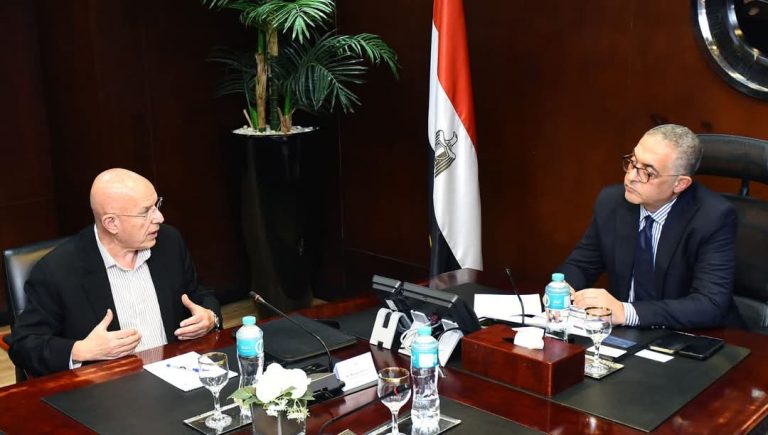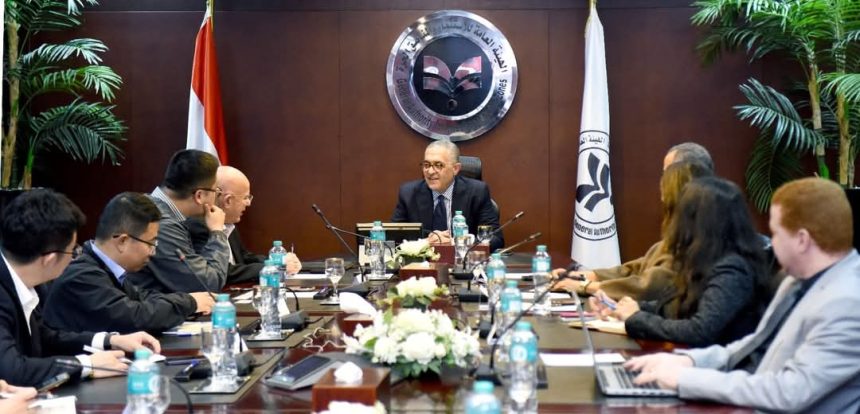Hossam Heiba, CEO of the General Authority for Investment and Free Zones (GAFI), recently met with a high-level delegation from Lutai Group, the world’s largest producer of dyed fabrics and shirts, to discuss the company’s plans to establish its first factory in Egypt. The proposed facility, representing an estimated investment of $385 million, aims to enhance Egypt’s standing in the global textile industry.
Spanning 500,000 square meters, the factory will be a cornerstone of Lutai’s fully integrated supply chain, overseeing processes from yarn production and fabric manufacturing to the creation of finished garments. Focused entirely on exports, this new facility aligns with Egypt’s national strategy to boost international trade and positions the country as a significant player in the global textile market.
Liu Deming, Lutai’s Global Marketing Director, highlighted the strategic importance of Egypt for Lutai’s expansion. He emphasized that the company plans to introduce advanced technologies, such as cutting-edge spinning systems, to elevate production quality. Lutai’s strong reputation for innovation, demonstrated by its four-time recognition with the Chinese National Science and Technology Award, underpins its commitment to delivering high-quality, innovative textile products.
The meeting also included key figures from both the Egyptian and Chinese sides, such as Mohamed Qassem, Chairperson of the Egyptian Exporters Association (ExpoLink), and Liu Deming alongside other senior executives from Lutai. The collaboration is expected to significantly boost Egypt’s competitiveness in the textile industry, further advancing its export capabilities on the global stage.
Liu Deming, Global Marketing Director of Lutai Group, emphasized several key factors that make Egypt an ideal location for the company’s expansion, such as the country’s economic stability, sustainable growth, and its skilled workforce. He also highlighted the strong ties between Egypt and China, which have facilitated a continuous flow of Chinese investments into Egypt, supporting growth in various sectors, including textiles.
Hossam Heiba, CEO of GAFI, echoed this sentiment by discussing Egypt’s favorable investment environment, enhanced by its investment law and associated incentives. He emphasized that Egypt’s economic growth rate, consistently higher than the regional average, coupled with its access to multiple trade agreements, grants investors access to a market of over three billion consumers globally. Heiba also noted Egypt’s low costs for construction, utilities, and essential services, making the country an attractive destination for foreign investment, especially in industries like textiles.
To ensure Lutai benefits fully from Egypt’s favorable investment framework, Heiba outlined the various investment systems and financial incentives available. These incentives align with Egypt’s broader goals of promoting technology localization, labor-intensive industries, and export-oriented investments, as well as developing underutilized regions. Lutai’s new factory, with its focus on 100% export, will be eligible for the “Golden License”, a fast-track approval system that ensures all necessary permits are obtained within 20 working days, speeding up the process of starting operations.

Mohamed Qassem, Chairperson of the Egyptian Exporters Association, further highlighted the increasing influx of foreign investment in Egypt’s textile and garment sectors, particularly from China. This influx is driven by global supply chain restructuring and a demand for investment-friendly environments. He also pointed out Egypt’s ongoing economic reforms, which are improving the competitiveness of its exports, particularly in textiles and garments, thus enhancing Egypt’s attractiveness as a top destination for foreign capital.
These collaborative efforts and favorable conditions are expected to strengthen Egypt’s role as a significant player in the global textile industry.
